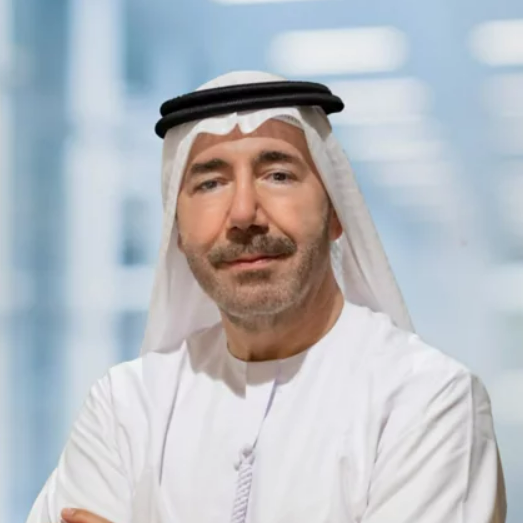For the past 25 years, Nader Alhaffar has been at the forefront of the ever-changing and highly demanding world of management consultancy. As chairman and CEO of KPMG in the Lower Gulf (UAE and Oman) since 2018, Alhaffar swiftly became the driving force of change within the firm. Echoing KPMG’s values of integrity and excellence, he introduced firm-wide policies that led to dramatic growth in the last four years with a keen focus on Emiratisation and Omanisation, corporate social responsibility, and always prioritizing employees of the firm. His tenure at KPMG is highlighted by the transformation of the audit practice and significant investments in quality. Both quality and integrity remain at the heart of everything the firm does: delivering on the ambition to be the most trusted and trustworthy firm for clients.

A firm of choice
With KPMG’s diverse and skilled talent, Alhaffar has built trust, partnerships, and eminence for the firm while his vision and ambition to expand the firm’s services to reflect the needs of the UAE market is evident through KPMG’s iconic client list. As the firm of choice for its people, partners, and clients, KPMG provides service of the highest quality. Under his vision, the firm continues to inspire confidence and empower change in its clients’ businesses and make an impact for the betterment of society. He firmly believes that the private sector plays a crucial role, alongside the leading light of the UAE government’s green initiatives, in its responsibility towards protecting environment. The massive transfer of KPMG employees to its new One Central offices contributed to a 60 percent decrease in energy consumption, and a 35 percent decrease in water consumption.
In March 2022, under Alhaffar’s directives, KPMG Lower Gulf signed the UAE’s Gender Balance Council “the Pledge” to achieve 30 percent women representation in management by 2025. The firm has since focused on woman’s participation in decision-making roles from middle management to the highest levels of leadership.
Arabian business cover
In 2019, he was recognised for his influence by Forbes Middle East as one of the Top 50 Expat CEOs in the UAE. He was also voted chairman of the Middle East and South Asia in 2021, a region that covers more than 25 office locations across 15 countries and territories. The region encompasses a combined talent pool of more than 8,000 professionals and associates, including over 500 partners and directors.
Q: Could you share a short reaction to how your industry and business has performed in 2021-22?
We are in a post-pandemic environment where we are seeing not only recovery but also significant growth. Our advisory business grew by 40 percent, primarily due to the addition of a number of solutions and capabilities. With the introduction of corporate tax in the UAE and VAT in Oman, KPMG’s Tax practice has been a frontrunner in advising clients. Quality continues to be our number one priority and our Audit practice has had a marquee year with iconic wins. This growth is a testament to the fact that we continue to remain the most trusted and trustworthy firm for our clients. By continuing to partner with businesses and government entities, KPMG has achieved revenue growth, year on year. We aim to be the employer of choice for our people, and the 16.2 percent rise in employee numbers reflects that. We are proud of our Emiratisation efforts with the number of Emiratis joining us increasing by 35.6 percent. The industry as a whole has seen growth over 2021-2022, reflecting the confidence of the leadership as well as clients.
Q What is your outlook for the industry for the year ahead?
GCC economies have seen a relatively solid start to 2022 with strong growth in business activity and new work in the UAE, Saudi Arabia, and Qatar. However, it’s natural that market uncertainty and the increase in inflation could have an opposing impact on the global economy and pose key concerns in the future. We know that flexible working is paving the way for the future and employers realise that the workplace is changing. Many companies are aligning priorities with a stronger emphasis on diversity, inclusion, and sustainability. These measures need to be areas of necessity for companies going forward but are also putting intense hiring pressure for recruiters especially during the current search for talent. The wide-spread social reforms in the UAE last year have led the country to attract new talent, a globally aligned stock market, digital infrastructure capabilities and greater economic competitiveness overall. It is likely we will see this translating into new social and digital innovations, a reshaping of the post-pandemic economy, and ranking the UAE higher on the “Ease of Doing Business” metric.
Original article: KPMG AE
